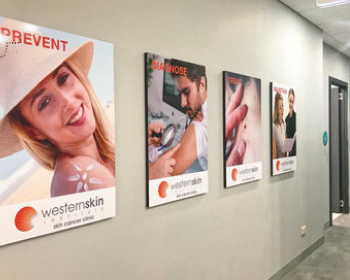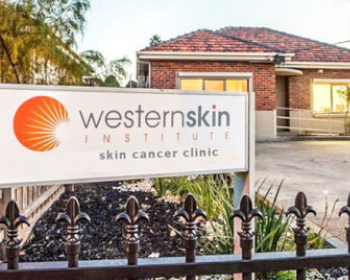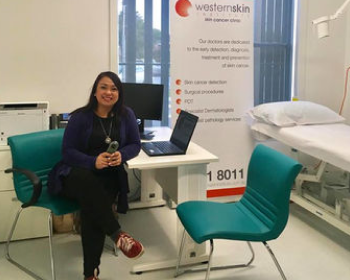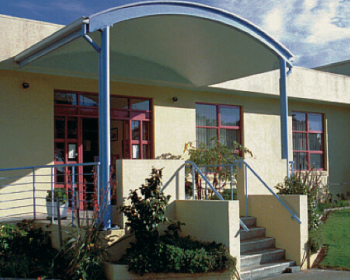Frequently asked questions
Do I need a referral to attend Western Skin Institute?
A referral is not needed for most of our services. However if you wish to see Dr Milan at our St Albans clinic a referral is needed.
How can I check my own skin?
It’s vital that you check your own skin to assist with early detection instead of relying solely on your own annual skin check.
What to look for
- any crusty sores that won’t heal
- small red, pale or pearly lumps
- any new spots, freckles or moles that change in colour, size, shape or thickness over a period of weeks to months
- particularly look for any spots that are dark brown to black, red or blue-black in colour
How often to look
You should check your own skin regularly – every three months to follow the best caution. You should also have your skin checked annually, either with your GP or at one of our skin cancer clinics, or as advised by your doctor.
How to look
It’s easy to perform the check yourself or with a close family member, partner or friend. You should check your face, neck and ears, scalp, front and back of torso, buttocks, arms, legs, hands, palms, feet, soles, and between fingers and toes, and finger and toe nails. It may help to use a hand-held mirror to help you look in the areas, such as your back and scalp, which you often cannot see.
Who is at risk?
You have a greater risk of developing skin cancer if you have:
- spent your childhood in Australia
- a large number of moles
- ever suffered from sunburn
- fair skin that burns easily and does not tan
- blue or green eyes
- fair or red hair
- been diagnosed with a melanoma in the past
- a family history of melanoma.
What is dermatoscopy?
Dermatoscopy, (sometimes called dermoscopy) is the study of looking at the skin using a dermatoscope.
Dermatoscopes are a tool which provide magnification and a light source. The light source often has both polarised and non polarised options. The two different light options allow us to visualise different features within a skin lesion (spot).
The dermatoscope used by someone with specific training allows the user to analyse a skin spot with more accuracy, therefore allowing us to diagnose melanoma and non-melanoma skin cancers better. The use of a dermatoscope also allows us to exclude benign (harmless spots) more easily, therefore reducing unnecessary excisions.
The history of dermoscopy extends back to 1663 but it wasn’t until 2001 that the first hand held polarised dermatoscope was produced.
At Western Skin Institute our doctors have the technology and training to be able to diagnose skin cancers, sometimes before they are obvious to the naked eye.
Multiple medical issues
It is not uncommon to have multiple issues. However, within a standard consultation, there is not enough time to address all of these issues and that the time taken to deal with these issues properly would cause delays for other patients.
There is also the issue of short-term memory. Short-term memory can hold 7 items (plus or minus 2) because it only has a certain number of “slots” in which items could be stored. When a doctor tries to deal with multiple issues, the majority of the instructions or plans are forgotten leading to bad patient management.
What can be done about this?
If you have more than two issues, kindly book in for another follow-up appointment. Alternatively, inform the receptionist that you would like a long consultation so more time can be added into future consultations.





